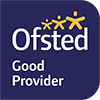Mountbatten Performance Data
What are SATs?
SATs are statutory assessments carried out by all state schools. They assess how your child’s abilities compare nationally with other children in the same year group. Your child will be assessed in Key Stage 2 (KS2), when your child will take part in National Curriculum tests in English, maths and the grammar, punctuation and spelling at the end of Year 6 (usually age 11).
Key Stage 2 Attainment – SATS Results 2024
| Subject | Achieved expected standard | National | Achieved greater depth | National |
|---|---|---|---|---|
| Reading, writing and maths combined | 46% | 61% | 2% | 8% |
| Reading | 59% | 74% | 11% | 28% |
| Maths | 54% | 73% | 15% | 24% |
| Writing | 69% | 72% | 2% | 13% |
| Grammar, punctuation and spelling | 59% | 72% | 15% | 32% |
Key Stage 2 Average Scaled Scores – SATS Results 2024
For a pupil to achieve the expected standard in reading and maths they must achieve a scaled score of 100+ in the corresponding tests.
* For a pupil to be working at greater depth in reading and maths they must achieve a scaled score of 110+ in the corresponding tests.
| Subject | Average scaled score |
|---|---|
| Reading | 100.3 |
| Maths | 99.8 |
| Grammar, punctuation and spelling | 100.2 |
Key Stage 2 Progress Scores – SATS Results 2023
* Average progress made in KS2
National average progress is always 0. Schools that make less progress receive a negative number rating, schools that make more progress receive a positive rating.
| Subject | Progress score | Banding |
|---|---|---|
| Reading | -4.9 | Well below average |
| Writing | 0 | Average |
| Maths | -2.8 | Below average |

“Subject leaders are knowledgeable about their subjects.”

“Teachers who are new to the school welcome the support they receive.”

“The ‘Mountbatten 50’ challenges pupils to complete a range of interesting activities
before they leave the school.”

“There is a clear focus on the teaching of early mathematics and reading.”

“Staff work closely with professionals from external agencies to provide support for pupils with SEND.”

“Children settle into school quickly.”

“Pupils say they feel safe in school.”

“The school is calm and orderly. Pupils walk around school sensibly and are courteous to one another.”

“Pupils learn how to keep safe when using the internet.”

“The residential visit to Robinwood encourages pupils to experience new challenges and work collaboratively with their friends.”

“Pupils enjoy attending school.”

“Teachers appreciate the support they receive from subject leaders to help them improve their teaching.”

“Pupils recommend the school to their friends.”

“Curriculum plans are well sequenced.”

” Some teachers check carefully to find out which pupils are stuck and which pupils need further challenge during lessons.”

“The early years environment is inviting and well organised.”

“Pupils access a range of visits and activities beyond their own experiences.”

“Leaders have considered what pupils might need to know to broaden their understanding of the world around them.”

“There are respectful relationships between adults and pupils.”

“Leaders have thought carefully about the curriculum plans they have introduced.”

“Pupils listen carefully to what adults say. They join in class discussions enthusiastically.”

“Leaders work well
with members of the multi-academy trust to support staff.”

“Adults help pupils who fall behind.”

“Pupils support each other well when they are completing their work.”

“Pupils enjoy learning about a wide range of subjects.”

“Senior leaders, alongside the multi-academy trust, have provided subject leaders with training.”

“Pupils say that behaviour is good.”

“Leaders and teachers make regular checks to see how well pupils with special educational needs and/or disabilities (SEND) are doing.”

“The school enjoyed recent success when the computing club won a local area competition using their coding skills.”

“Teachers check what pupils have learned and remembered each term.”

“There is a strong team culture within the school.”

“Staff are well trained in teaching children to read.”

“Children start to learn to read as soon as they enter the school.”

“There are a wide range of school clubs.”

“Staff encourage
pupils to be independent from an early age.”

“Staff welcome the highquality training they receive. They feel proud to work in the school.”



